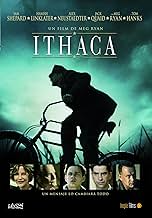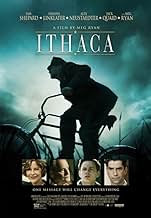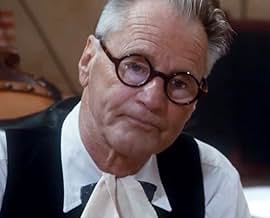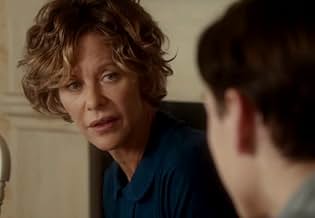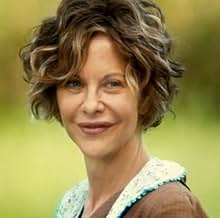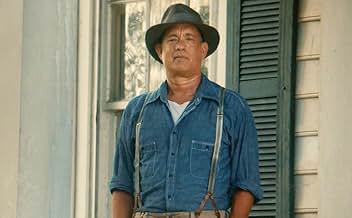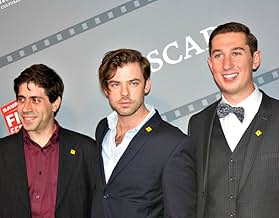VALUTAZIONE IMDb
5,5/10
3289
LA TUA VALUTAZIONE
Con il fratello maggiore in partenza per la guerra, il quattordicenne messaggero telegrafico, Homer Macauley, diventa maggiorenne nell'estate del 1942.Con il fratello maggiore in partenza per la guerra, il quattordicenne messaggero telegrafico, Homer Macauley, diventa maggiorenne nell'estate del 1942.Con il fratello maggiore in partenza per la guerra, il quattordicenne messaggero telegrafico, Homer Macauley, diventa maggiorenne nell'estate del 1942.
- Premi
- 2 candidature totali
Recensioni in evidenza
"I don't know what's ahead, but whatever it is I am humbly ready for it." Homer Macauley (Neustaedter) has just watched his brother go off to fight in WWII and wants to do anything he can to help. He decides the best way for him to help his family is to get a job. He decides to become a bicycle telegraph messenger, and sets out to be the best and fastest one anyone has ever seen. Soon after he begins he is given a message that changes everything, and his job becomes more important than he ever imagined. This is a movie that I am very torn about. On one hand the movie has tremendous heart and leaves you hoping the movie won't end the way you expect it to. The acting is great and this is a very good character study of how the war affected the relatives stateside. On the other hand, you have a prediction on how the movie will end and you are just waiting for it to come to fruition. The fact that you think this way distracts you from the movie and the emotion of every other aspect seems to be lost and glossed over. I didn't think the movie was that bad and it is worth seeing, but about a year ago a movie called Little Boy came out and that was far better than this one. Overall, a good movie that is worth seeing, but you spend the entire time waiting for one thing to happen and it ultimately distracts you from the rest of the movie. I give this a B-.
Greetings again from the darkness. The source material is the 1943 novel "The Human Comedy" from Pulitzer Prize winning writer William Saroyan; and it's the directorial debut of Meg Ryan, the one-time 'America's Sweetheart' who reunites with her Sleepless in Seattle co-star Tom Hanks (in a ghostly cameo). Due to these juicy ingredients, we can be excused if our expectations are a bit high.
As a viewer, it's easy to relate to the emotions of young Homer McCauley (Alex Neustaedter) as his messenger job expedites the disillusionment that often accompanies adulthood. While Homer becomes more disenchanted the more he learns, we feel let down with each successive sequence. The adapted screenplay from Eric Jendresen never picks a direction, and instead teases us with numerous pieces from the novel with little follow through on any.
Homer's dad (a very brief Tom Hanks apparition) has recently passed, and with his older brother Marcus (Jack Quaid, son of Meg Ryan and Dennis Quaid) off at war, Homer takes it upon himself to secure a job to help support his saintly and melancholy mother (Meg Ryan), his older sister Bess (Christine Nelson) and his little brother Ulysses (an energetic Spencer Howell). He pledges to be the best bicycle messenger ever when hired at the local telegraph company run by Tom Spangler (Hamish Linklater) and old-timer (grumpy and frequently inebriated) Willie (Sam Shepard).
Being that it's war time, some of the telegraphs Homer must deliver are the worst possible news for the parents on the receiving end. As the film progresses, we see the light slowly go out of Homer's once bright eyes. The accelerated coming-of-age aspect is at its best when his father-figure Willie brusquely tells him "You are 14 years old and you're a man! I don't know who made you that way." It's the most poignant moment of the film and the closest we get to a real theme.
The letters Homer receives from older brother Marcus contribute to his understanding of the world and the reading of the letters serves the purpose of story narration. The film is nostalgic and idealistic, but so unfocused that we are never able to fully connect with any of the characters. We are caught off guard when Homer proclaims his mother as the nicest person ever, although she has offered even less guidance than Forrest Gump's mom. Ithaca, Ulysses, and Homer we can't miss the mythology ties, as well as the importance of home, but it always feels like something is missing.
In 1943, six time Oscar nominee Clarence Brown made a movie based on this same novel, and the cast included Mickey Rooney, Frank Morgan, Donna Reid and Van Johnson. In this new version, John Mellencamp provides the musical score, and Ms. Ryan has stated that the novel helped her work through a difficult time in her personal life. She's likely to get more opportunities to direct; her first outing is easy enough to watch, but just as easy to forget.
As a viewer, it's easy to relate to the emotions of young Homer McCauley (Alex Neustaedter) as his messenger job expedites the disillusionment that often accompanies adulthood. While Homer becomes more disenchanted the more he learns, we feel let down with each successive sequence. The adapted screenplay from Eric Jendresen never picks a direction, and instead teases us with numerous pieces from the novel with little follow through on any.
Homer's dad (a very brief Tom Hanks apparition) has recently passed, and with his older brother Marcus (Jack Quaid, son of Meg Ryan and Dennis Quaid) off at war, Homer takes it upon himself to secure a job to help support his saintly and melancholy mother (Meg Ryan), his older sister Bess (Christine Nelson) and his little brother Ulysses (an energetic Spencer Howell). He pledges to be the best bicycle messenger ever when hired at the local telegraph company run by Tom Spangler (Hamish Linklater) and old-timer (grumpy and frequently inebriated) Willie (Sam Shepard).
Being that it's war time, some of the telegraphs Homer must deliver are the worst possible news for the parents on the receiving end. As the film progresses, we see the light slowly go out of Homer's once bright eyes. The accelerated coming-of-age aspect is at its best when his father-figure Willie brusquely tells him "You are 14 years old and you're a man! I don't know who made you that way." It's the most poignant moment of the film and the closest we get to a real theme.
The letters Homer receives from older brother Marcus contribute to his understanding of the world and the reading of the letters serves the purpose of story narration. The film is nostalgic and idealistic, but so unfocused that we are never able to fully connect with any of the characters. We are caught off guard when Homer proclaims his mother as the nicest person ever, although she has offered even less guidance than Forrest Gump's mom. Ithaca, Ulysses, and Homer we can't miss the mythology ties, as well as the importance of home, but it always feels like something is missing.
In 1943, six time Oscar nominee Clarence Brown made a movie based on this same novel, and the cast included Mickey Rooney, Frank Morgan, Donna Reid and Van Johnson. In this new version, John Mellencamp provides the musical score, and Ms. Ryan has stated that the novel helped her work through a difficult time in her personal life. She's likely to get more opportunities to direct; her first outing is easy enough to watch, but just as easy to forget.
It shows the innocence of a younger son, an older son grown up, and a middle son Homer becoming aware of what real life is as he delivers telegrams to the mothers of sons who will not be coming back home from the war alive. Homer grows up as he sees the pain of life.
An old man named Will Grogan receives and types the telegrams. Mr. Grogan drinks to help deal with his pain of sending this information to families in the community.
The movie shows us how war may effect us. It makes you realize the front line of war can be just as difficult at home as they try to continue with life.
An old man named Will Grogan receives and types the telegrams. Mr. Grogan drinks to help deal with his pain of sending this information to families in the community.
The movie shows us how war may effect us. It makes you realize the front line of war can be just as difficult at home as they try to continue with life.
7Nozz
After World War II, William Saroyan gambled away all his money but he preferred to resort to hack work rather than sell movie rights to any of his novels. Not after his disappointment with the original movie of The Human Comedy. Part of it was vanity. He'd wanted to direct the movie, and MGM wouldn't let him. But it's also true that Hollywood has its own point of view and it doesn't always match Saroyan's.
In Ithaca, which is a remake of the Human Comedy (now that Saroyan is dead), the main story and characters are preserved, but to me it doesn't look like Saroyan. In the book's classic illustrations by Don Freeman, Mrs. Macauley is older-looking and certainly not an attractive but obvious plastic-surgery veteran like Meg Ryan. Grogan is older-looking too. The character brought most successfully to the screen is Ulysses, although he shouldn't be losing his baby teeth if, as the dialog says, he's four. He's remarkable.
The visuals are, to my taste, too expressionistic. The telegraph office is huge, the roads are wide, and things are too big in general except where Marcus the faraway soldier is involved. All the scenes with Marcus are crowded. That does emphasize the contrast between Ithaca and where Marcus is, but Marcus is not remote enough. Because there are continual voice-overs from his letters, I think the audience doesn't appreciate his absence as a factor. Even the dead father isn't completely absent, and although he adds a sorrowful note, this unkillable family togetherness diminishes the philosophical message that our human condition is one of loneliness and we must actively reach out.
On the one hand, I expected a dustier, less prosperous-looking Ithaca. On the other hand, I was surprised that the choice of music verged on primitivity. More Appalachian than Californian.
I think that a more realistic movie might have worked better, because of the need to carry some dialogue that can, if not handled right, sound unrealistically divorced from what everyday people really say. People declaiming unrealistic-sounding dialogue amidst unrealistic-looking scenery may be fine for the stage but it's difficult to sell on the screen.
Still, the movie tries to be respectful of the original. It even includes some salutes to matters that only readers of the book will fully appreciate-- such a mention of unripe apples, referencing a whole episode involving unripe apricots in the book. I hope that since Saroyan is no longer alive to object, Hollywood will continue to mine his canon.
In Ithaca, which is a remake of the Human Comedy (now that Saroyan is dead), the main story and characters are preserved, but to me it doesn't look like Saroyan. In the book's classic illustrations by Don Freeman, Mrs. Macauley is older-looking and certainly not an attractive but obvious plastic-surgery veteran like Meg Ryan. Grogan is older-looking too. The character brought most successfully to the screen is Ulysses, although he shouldn't be losing his baby teeth if, as the dialog says, he's four. He's remarkable.
The visuals are, to my taste, too expressionistic. The telegraph office is huge, the roads are wide, and things are too big in general except where Marcus the faraway soldier is involved. All the scenes with Marcus are crowded. That does emphasize the contrast between Ithaca and where Marcus is, but Marcus is not remote enough. Because there are continual voice-overs from his letters, I think the audience doesn't appreciate his absence as a factor. Even the dead father isn't completely absent, and although he adds a sorrowful note, this unkillable family togetherness diminishes the philosophical message that our human condition is one of loneliness and we must actively reach out.
On the one hand, I expected a dustier, less prosperous-looking Ithaca. On the other hand, I was surprised that the choice of music verged on primitivity. More Appalachian than Californian.
I think that a more realistic movie might have worked better, because of the need to carry some dialogue that can, if not handled right, sound unrealistically divorced from what everyday people really say. People declaiming unrealistic-sounding dialogue amidst unrealistic-looking scenery may be fine for the stage but it's difficult to sell on the screen.
Still, the movie tries to be respectful of the original. It even includes some salutes to matters that only readers of the book will fully appreciate-- such a mention of unripe apples, referencing a whole episode involving unripe apricots in the book. I hope that since Saroyan is no longer alive to object, Hollywood will continue to mine his canon.
It is good to see that there is movies made not for sale. Movies that bring some meaning and help to think. My English is poor so I cant good express myself, but I hope main point is clear. This movie will make you think,will leave something after to think about. And it is much deeper that it looks at the first time. War is big problem, and it is still actual , right now there is so many fights, pain, destroyed families, and people avoid to think about it. It is not fun, it is not comfortable, it is better pretend that its not exist. Thats why I think this kind of films will make word a bit better. Thanks to everyone who invested to this film.
Lo sapevi?
- BlooperWhen they are in the cinema watching the newsreel, there's a shot of a man carrying a wounded solider across a river. The commentary states "when this country was extending a helping hand."
That shot is actually of an Australian soldier helping a wounded Australian in the Kokoda campaign in New Guinea. The film is footage from Kokoda Front Line, by Damian Parer, who was an Australian combat camera man.
- Citazioni
Mrs. Macauley: There will always be pain in this world, Homer. And a good man will seek to take the pain out of things.
I più visti
Accedi per valutare e creare un elenco di titoli salvati per ottenere consigli personalizzati
- How long is Ithaca?Powered by Alexa
Dettagli
- Data di uscita
- Paese di origine
- Sito ufficiale
- Lingua
- Celebre anche come
- Thành Phố Ithaca
- Luoghi delle riprese
- Aziende produttrici
- Vedi altri crediti dell’azienda su IMDbPro
Botteghino
- Budget
- 5.000.000 USD (previsto)
- Tempo di esecuzione
- 1h 36min(96 min)
- Colore
- Proporzioni
- 2.35 : 1
Contribuisci a questa pagina
Suggerisci una modifica o aggiungi i contenuti mancanti


